FACTSHEET
MASTER’S PROGRAMME GENDER STUDIES
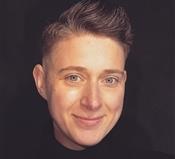
By choosing Utrecht University to pursue your graduate studies, you are becoming part of a world-class research environment. It is our great pleasure to welcome you into this dynamic international community that we hope will be both intellectually and socially rewarding to you.
As a MA student, you are part of Utrecht University’s Graduate Gender Programme, a rich network of Masters and Ph.D. students and faculty from all over the Netherlands and the world. The Graduate Gender Programme consists of various components, including the two-year Research Master in Gender Studies and the one-year Master in Gender Studies. We also take part in the EU Erasmus Mundus Master in Women’s and Gender Studies (GEMMA). In addition, we host the Netherlands Research School of Gender Studies (NOG), which is the national platform for gender research and teaching by faculty members from various Dutch universities, offering a highly successful training programme and environment for postgraduate and Ph.D. students.
Throughout our one-year Master’s programme, we hope you will be both inspired and challenged in your engagement with a diverse range of topics related to gender and postcolonial studies. Given the wealth of courses, lectures, events, and activities offered by the Graduate Gender Programme, we are confident that our multidisciplinary approach will be stimulating and engaging to you as you embark upon your MA studies. It is also our hope that you make this programme your own, forging a path ahead that builds upon your experiences and interests and opens you up to future academic and professional possibilities.
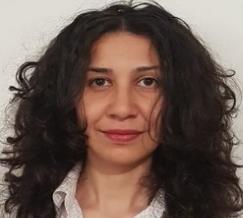
We hope that any general questions about the programme can be answered using this guide and the Programme Book. If you cannot find your answer here and have any further questions, please have a look at our website or contact the programme coordinators Jamila Mascat and Magdalena Górska.
In case you come across information you think would be useful to other (prospective) students during your year(s) here, please let us know, so we can include it in next year’s edition!
We wish you luck in beginning the programme, and we very much look forward to sharing and creating this space with you!
Please enjoy your stay in Utrecht!
j.mascat@uu.nl
G
m.a.gorska@uu.nl CHECK OUT OUR WEBSITE
D R J AMILA M ASCAT
D R M AGDALENA
ÓRSKA
DO YOU WANT TO GET INVOLVED?
Student Representative at the Curriculum Committee
The curriculum committee (CC or Opleidingscommissie, OC) is a representative advisory body that deals with the quality of the education of the Master programmes within the Department of Media and Culture Studies. The committee consists of a teacher section (three teachers) and a student section (three students), one student from each Master.
What are the CC's duties? Students complete a course evaluation for each course at the end of each block. The CC then evaluates the courses on the basis of this course evaluation and reports on them during meetings with the rest of the CC. In addition, the CC issues advice about the Education and Examination Regulations (EER or in Dutch OER) after an evaluation of this OER. Finally, the CC advises the programme board on all sorts of matters concerning education.
If you’d like to become a member on the committee, please contact the master’s coordinators!
Gen K
Study association Gen K, established in 2021, offers an academic, interactive, and safe(r) platform to students of all Gender Studies programs at Utrecht University, including the BA Gender Studies and Postcolonial Studies Minors, the Pre-Master programme, the Master programme, the Research Master programme, the international GEMMA programme, and Gender Studies alumni. The main objective of the study association is to allow students to come together and organize activities, enable cross-programme networking and exchange ideas, and provide academic depth to the experience of becoming a Gender Studies professional.
Each year, new students have the opportunity to join the board, so keep an eye out for Gen K board position vacancies!
https://www.gen-k.nl
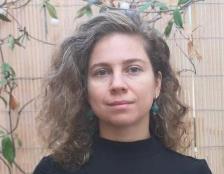
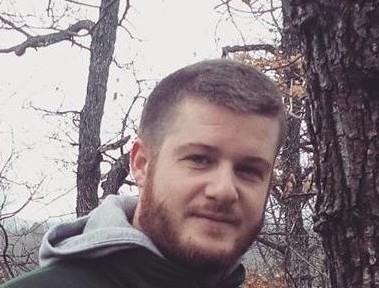
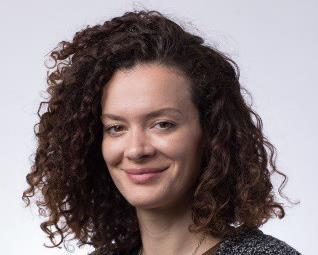




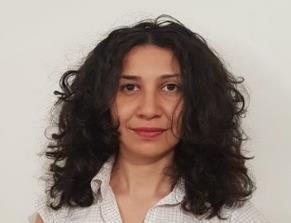
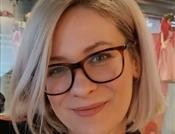
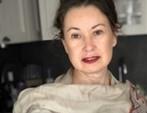

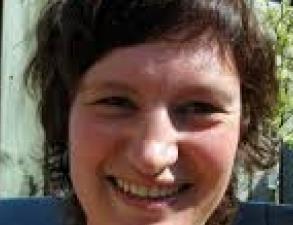
THE TEAM ■ ■ ■ D R . L AURA C ANDIDATU ■ ■ ■ DR.GISELACARRASCOMIRO ■ ■ ■ D R G IANMARIA C OLPANI ■ ■ ■ D R D EIRDRE D ONOGHUE ■ ■ ■ D R L AYAL F TOUNI ■ ■ ■ D R . M AGDALENA G ÓRSKA ■ ■ ■ D R . A DRIANO H ABED ■ ■ ■ D R I DA H ANSEN ■ ■ ■ D R E VA H AYWARD ■ ■ ■ D R K OEN L EURS ■ ■ ■ D R . J AMILA M ASCAT ■ ■ ■ D R . E VA M IDDEN
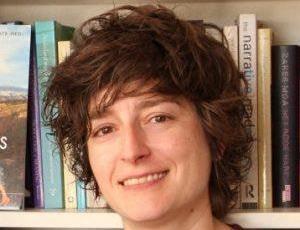
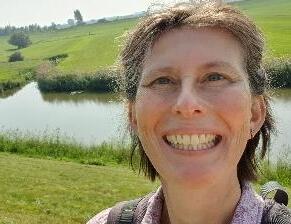
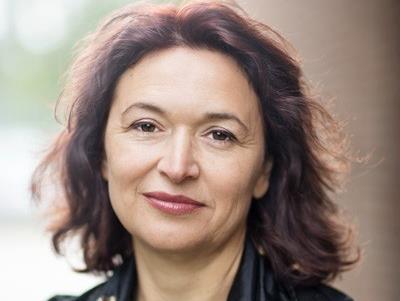
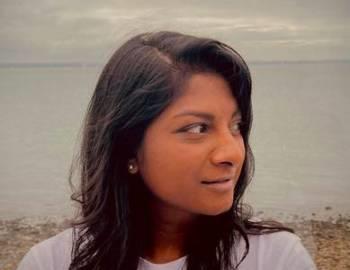
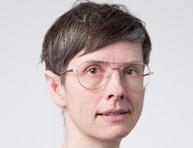
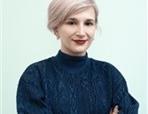
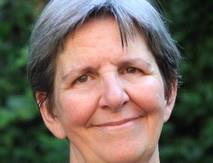
■ ■ ■ D R D OMITILLA O LIVIERI ■ ■ ■ TRUDE OORSCHOT ■ ■ ■ PROF. DR. SANDRA PONZANESI ■ ■ ■ D R Z ULEIKA B IBI S HEIK ■ ■ ■ D R . K ATHRIN T HIELE ■ ■ ■ D R . M ILICA T RAKILOVIC ■ ■ ■ P ROF D R B ERTEKE W AALDIJK
STUDY ADVISOR
You may approach the study-advisor when there are personal circumstances which might influence the progress of your study. Please contact the study-advisor in a timely manner when you experience personal problems.
Facing issues with your studies? The study advisors are there to help and support you to successfully complete your degree. They can act as confidential counsellors, advise on issues regarding illness and special circumstances and, together with you, look at the possibility to cope with the studies while dealing with disabilities or chronic illnesses. They can also help with specific arrangements and procedures, such as complaints, objections and appeals. You can find more information on the university website, at: https://students.uu.nl/en/hum/gender-studies/contact/study-advisor
Other student support and well-being
The UU offers all kinds of support in the field of wellbeing. Good health and wellbeing are not only crucial ingredients for a good and effective student life, they contribute to a rewarding professional life after your studies as well.

That is why we offer you the opportunity to focus on the personal side of professional development in addition to the academic development you are going through.
In that context, we offer various (group) activities to support your well-being that help with staying resilient and flexible, capable of dealing with stress, procrastination and perfectionism, focusing on what is important and being able to make decisions.
Take a look at our website for the training offer: https://students.uu.nl/en/hum/personaldevelopment/wellbeing-trainers Check this link for further information and weblinks to various student services.
■ ■ ■
N YNCKE K RAMER
THIS PROGRAMME
How do gender, race, class, and sexuality – amongst many other intersecting social categories - contribute to the formation of social positions and ways of living? What role do power differences between these factors play in our globalised and mediatised world? What measures have been taken, in the past and the present, in order to prevent discrimination and exclusion? And how do academic, cultural, artistic, journalistic, and policy-making institutions respond to these societal challenges?
Emancipation, the recognition of differences, and awareness of intersections of gender with other factors of individual and group positioning are crucial tools in analysing social and cultural relations in today’s societies. Our Master’s programme in Gender Studies provides you with an interdisciplinary understanding of these tools, as well as advanced analytical skills. You will be trained within an internationally diverse cohort of students and academic staff to become a professionally successful 'agent of change'.
EDUCATIONAL PHILOSOPHY
Your education in Gender and Postcolonial Studies will combine theoretical knowledge with its practical application in all parts of the programme. You will develop research skills through intensive coursework and participate in an internship that combines your subject matter interests with professional experience. Your final thesis project is a space where you dive in-depth into your specific research interests.
After completing this one-year programme, you will be able to develop sustainable perspectives for future research and action, and have the motivation and knowledge to implement these perspectives in emancipation policies, diversity management, social and cultural initiatives, and political activism.
THIS PROGRAMME AND OUR SOCIETY
After graduation, you will have advanced knowledge of and insight into the field of Gender and Postcolonial Studies. You will be an expert in understanding and analysing intersectional power dynamics across such categories as gender, class, race, and sexuality.
The insights from gender studies and emancipation research are useful to a growing number of organisations and companies seeking to develop and/or critically reflect upon policies to effectively intervene on behalf of specific target groups and market segments. Read more about possible career prospects: Career prospects - Gender Studies - Utrecht University (uu.nl)
COURSE PLANNER: You will find more information on this programme’s courses in the Course Planner: https://cursusplanner.scien ce.uu.nl/study/AC-GSTM-16


IMPORTANT FOR HUMANITIES STUDENTS
New students students.uu.nl/hum-new Practical information for new students at the Humanities faculty.
Academic calendar students.uu.nl/hum-calendar
Information about days off, course registrations and change-of-enrolment days.
UU online

Information about our online systems and how to log in: students.uu.nl/hum-online In need of a manual? IT manuals: https://manuals.uu.nl/en
REGISTRATION, PROCEDURES, INTERNSHIP INFO
Student Information Desk Humanities students.uu.nl/hum-contact
Programme related matters, such as
• course registration
• course schedules
• study results & study progress (Osiris)
• graduation
Student Services students.uu.nl/en/contact/student-services
Studying at Utrecht University in general:
• registration as a UU student

• tuition fees
• elite athletes
• disability or chronic illness
Internship coordinator students.uu.nl/hum-internshipcoordinator


Information about:
• guidelines and procedures
• internship placements
QUESTIONS ABOUT ENTERING THE JOB MARKET
Career Services students.uu.nl/hum-careerservices
Advice on getting a job after graduation through workshops, CV check-up, and coaching. Your programme coordinator will inform you about programme-specific events.
NEED EXTRA HELP?
Study advisor: students.uu.nl/hum-studyadvisor






Student psychologist: students.uu.nl/psychologist
Workshops: Skills Lab: students.uu.nl/en-skillslab
THINKING OF GOING ABROAD ?
International office Humanities: students.uu.nl/hum-io
OTHER FACILITIES
University Library: students.uu.nl/hum-library
Olympos sports centre: olympos.nl/en-us/home.aspx
Parnassos cultural centre: uu.nl/en/parnassos
FACT! You can find your grades, student card and timetable in the MyUU portal and the MyUU app: students.uu.nl/en/myuu and students.uu.nl/en/ myuu-app
FACT! In the second semester, you will have to register in Osiris for courses you wish to attend. If you want to switch courses, you can do so on the change-ofenrolment days before the start of the relevant block.
FACT! Deadlines are always listed in the course syllabus, which your lecturer will provide approximately 2 weeks prior to the course’s ’start.
FACT! If you need more information about specific aspects of your programme, e.g. internships or thesis, please see the Curriculum page on the programme website via students.uu.nl/hum.
FACT! Check students. uu.nl/hum-studentlife for information about living, jobs, sports and leisure in Utrecht!
© June 2023. Utrecht University, Faculty of Humanities. Every effort has been made to ensure that the information presented in this factsheet is correct and up to date Utrecht University cannot be held liable for any false, inaccurate, or incomplete information presented herein



























